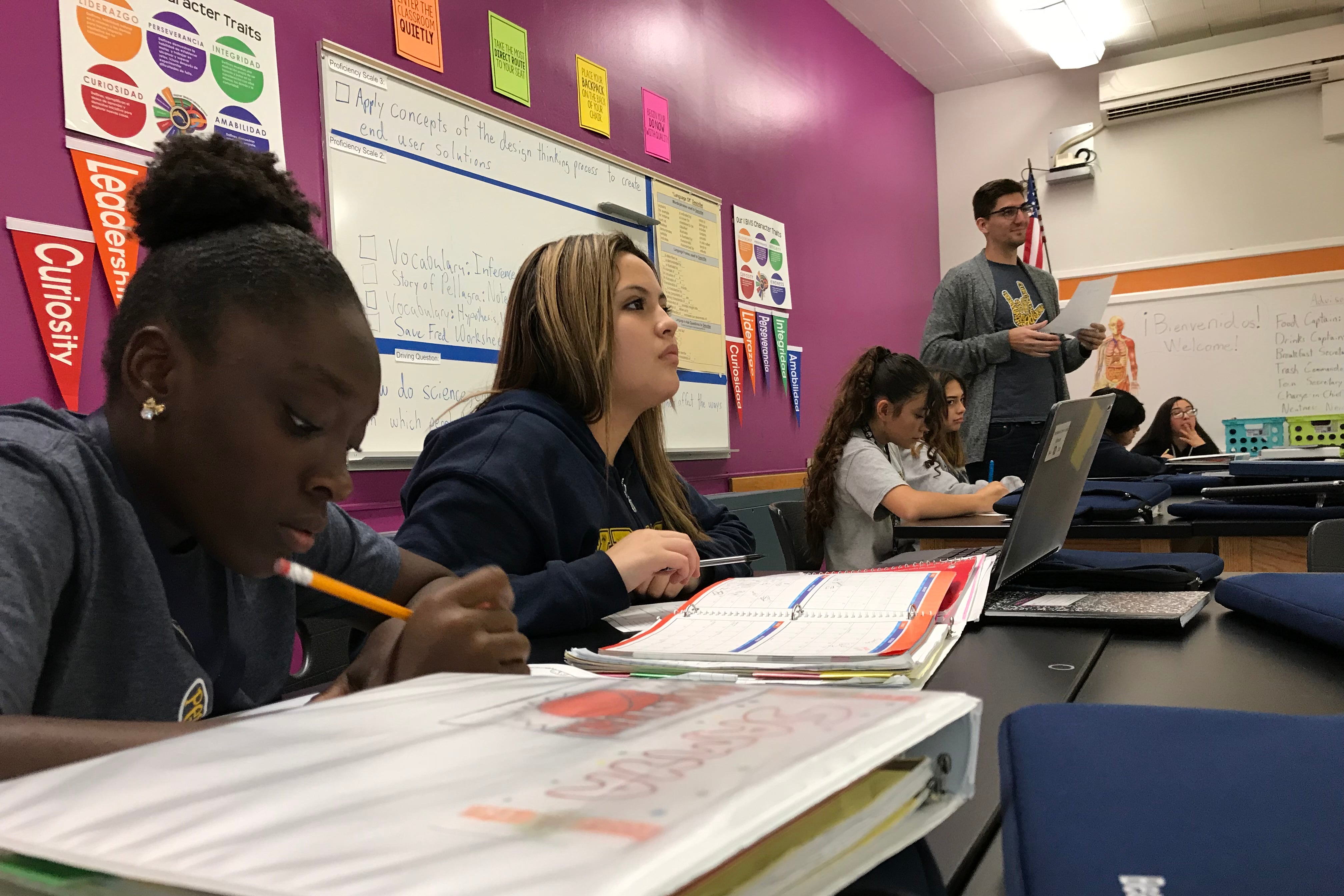A compromise at the state Capitol will give semi-autonomous groups of schools some recourse when they disagree with district decisions while still preserving district authority.
Denver Public Schools and the Denver Classroom Teachers Association, which had strongly opposed the original version of the bill, are now neutral on the proposal. Innovation zone supporters still see the bill as providing important new protections.
Instead of binding arbitration, the amended bill proposes that a neutral third party hear any disputes and issue recommendations, not final orders. That compromise satisfies a concern expressed by Denver Public Schools that an arbitrator could overrule the elected school board.
The amended bill also gives the State Board of Education less power than the original bill did, allowing the State Board to review and comment on local board decisions, not override them.
State Rep. Jennifer Bacon, a Denver Democrat who was a member of the Denver school board until her term ended last year, told the House Education Committee Friday that the amendments attempt to preserve local control, a vaunted concept in Colorado.
“You will see with the amendments, we have created a space for dispute resolution but not so much so that it crosses the lines of local control,” said Bacon, who is co-sponsoring the bill.
Two Denver Democratic state senators, James Coleman and Chris Hansen, introduced Senate Bill 197 after a year of meetings about innovation schools and zones, which state law created in 2008 to give district-run schools additional flexibility in how they operate. Innovation schools have less autonomy than independent charter schools but have the power to waive certain district and state rules, as well as portions of the teachers union contract.
Innovation zones are groups of innovation schools that have even more autonomy because they are managed not by the school district but by a nonprofit organization. Denver has three innovation zones that together contain 12 schools. Innovation supporters have chafed at several recent decisions by the Denver school board, including a denial to add more schools to the zones and new limitations on innovation schools’ flexibility and autonomy.
At Friday’s hearing, some House Education Committee members expressed reservations about wading into Denver disputes and passing a law that would affect only 12 schools in the state.
“I get that, you know, some innovation zones have arguments with their local school boards, but I don’t think that the legislature belongs in the middle of these little squabbles,” said state Rep. Cathy Kipp, a Fort Collins Democrat who served on her local school board.
But Kipp was in the minority. The bill passed the committee 7-2. Rep. Yadira Caraveo, a Thornton Democrat, joined Kipp in voting no. The bill now moves to the full Senate.
“I know it was heavily negotiated,” said Rep. Dafna Michaelson Jenet, a Commerce City Democrat. “I know that most people came to the table and at least came to a neutral stance on this, and I think that that is really critically important.”
Denver Superintendent Alex Marrero did not testify at Friday’s hearing. A district spokesperson said Denver Public Schools is neither in favor nor against the amended bill.
Marrero testified against the original bill two weeks ago at its first hearing in the Senate Education Committee. A handful of innovation zone principals and parents testified in favor. After that hearing, the district sent an email to principals advising them they are not allowed to advocate for bills during work time or using district resources if their opinion differs from the district’s position. One leader who testified said the email “caused a lot of fear.”
However, that leader, Alex Magaña, executive director of Beacon Network Schools, one of Denver’s three innovation zones, was back at the Capitol Friday. He and several other innovation school principals and teachers testified in favor of the amended bill.
“Take this opportunity to ensure innovation in Colorado is possible for all and change the landscape of education for the better,” said Brent Applebaum, principal of Creativity Challenge Community, an elementary school that’s part of Denver’s Luminary Learning Network zone.
Rob Gould, president of the Denver Classroom Teachers Association, also testified in favor of the amended bill, calling the amendments “a much needed compromise.” Gould had testified against the original bill two weeks ago on the grounds that it violated local control.
Correction: This story has been updated to reflect that, while union President Rob Gould spoke in favor of the compromise, the official position of the Denver Classroom Teachers Association on the innovation zones bill is neutral.
Melanie Asmar is a senior reporter for Chalkbeat Colorado, covering Denver Public Schools. Contact Melanie at masmar@chalkbeat.org.






